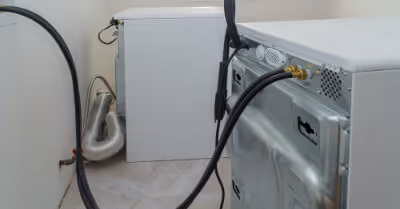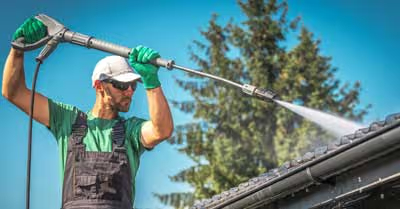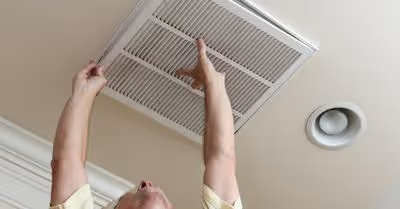Table of Contents
How Much is Home Insurance
The cost of homeowners insurance varies greatly. It is best to look at the factors that play a major role when a company gives you a quote. However, the average national cost is around $1,200 to $1,500 per year for homes up to $200,000 and $2,305 for homes valued at $300,000.
The state in which you reside, the cost of the home, and the amount and types of claims in your area all play a major role in determining the cost of the policy.
Insurers will divide the losses associated with a group by the amount of insured property value. This is called the pure premium. They also determine fees like administrative costs, commissions, and taxes. These are built into the company's desired profit and are called the expense ratio.
The price you will pay for coverage is the premium. Typically this is the pure premium divided by one minus the expense ratio. The average expense ratio is 27.1 percent. However, this is not the only thing to factor in and companies keep their calculation methods secret.
Some of the factors that likely play a role in the cost are:
- Value of home
- Replacement cost
- Age
- Square footage
- Amount of residents including number and types of pets
- Type of construction and security features
- Public Protection Classification or PPC
- Claim history (both for you, the previous owners, and the area)
- Credit Score
- Crime rate
Cheapest Home Insurance
First we want to cover the overall cheapest companies before we look at the best home and auto bundles. In addition to these large providers, you should consider regional or local companies as well in order to get the best coverage for the most affordable price.
Lemonade
Lemonade is a newer company that was founded in 2015 and it uses an app on your phone. It isn’t available nationwide, but it is available in 23 states. The plans start at $25 a month and they handle claims quickly. They do not have home and auto bundle options available.
Coverage
They cover the dwelling and personal property both inside and outside of the home. They will also pay for living expenses if your residence is unlivable due to a covered loss. They have personal liability for medical and legal costs on the property.
They cover damage caused by:
- Vehicles including aircraft
- Riots, theft, and vandalism
- Fire and smoke
- Lightning
- Wind
- Volcanic eruption
- Explosions
- Hail, ice, snow, and sleet
- Falling objects
- Overflow or discharge of steam and water
- Damage caused by short circuits
You can also add on extra coverage for earthquake protection or jewelry protection over $1,500.
USAA
USAA is committed to providing low cost home insurance to veterans, members of active service, and their families. They offer a discount for bundling, safety and security, and for those with no claims. They are known for their fantastic customer service.
Coverage
USAA will cover your dwelling and structure, personal belongings, loss of use, liability, home sharing, identity theft, vandalism, fire, theft, and most weather related damage.
Liberty Mutual
Liberty Mutual has a ton of options, discounts for bundles, and great customer service. You can file claims on their mobile app. They are available nationwide, but some options differ based on region. They also offer a plethora of discounts.
Coverage
Not only do they cover your dwelling and structure and personal property, but they have legal and medical liability, inflation protection, and loss of use. You can add on identity theft, flood, earthquake, identity fraud, and more coverage options.
Progressive
Progressive is an affordable option if you take advantage of the many discounts they offer. Not only do they offer discounts for bundling home and auto, they also have safety discounts for smoke detectors and security systems. They even have a discount for securing a new policy before your first one expires or for paying the full cost of your policy.
Coverage
Progressive covers your property and belongings, medical and legal liability, and loss of use. You can add on water damage and personal injury.
They cover damage related to:
- Lightning
- Fire and smoke
- Tornadoes
- Power surges
- Ice, snow, sleet, hail
- Wind
- Volcanic eruption
- Explosions
- Riots, theft, and vandalism
- Vehicles including aircraft
- Falling objects
- Water damage, but not floods
Metlife
Metlife is one of the older companies and was founded in 1868. It is also one of the largest. They offer bundles and discounts for new homes, multiple policies, mature homeowners, and safety features. One downside is that they do not have online quoting and you have to email or call to file a claim.
Coverage
They cover personal property and structure, legal liability, medical, loss of use, hail, fire, theft, tornadoes and more. It also includes identity theft coverage. They have excellent replacement cost coverage as well.
Travelers
Travelers is one of the most affordable options and they almost never default on a claim. This is especially true if you take advantage of their multiple policy discount; you can save 12% if you bundle home and auto with two other policies. They also offer a discount for new home buyers, customers who have never filed a claim, safety, and green homes. Their customer service, however, tends to be lacking compared to other providers with J.D. Power placing them in the bottom half in 2020.
Coverage
Travelers home insurance will cover dwelling and structure, liability, loss of use, and personal belongings. They cover the typical causes like fire, hail, lightning, theft, vandalism, and wind. Earthquakes and floods are generally not covered without additional policies.
Cheapest Bundles
It is often a good idea to bundle home and auto insurance as well as other insurance coverage. This can help you get discounts and carries the convenience of working with a single provider.
AIG
AIG has extensive coverage at an affordable price. They also have wildfire and hurricane service in disaster prone areas. They offer policies in all 50 states and Washington D.C. However, they typically will not only cover you home and you will have to bundle their homeowners insurance with other coverage such as auto or excess liability.
Coverage
AIG caters to high value homes and covers all risk for dwelling, structure and personal property. They also have loss of use coverage, food spoilage, pet damage, landscape, lock replacement and medical liability.
State Farm
State Farm gives one of the best discounts for bundling home and auto, up to 30 percent! They also offer safety discounts including impact-resistant roofing. They are the largest insurer for homeowners in the U.S. and have an above average J.D. Power score. They are also known for excellent customer service.
Coverage
They cover dwelling and structure, personal property, liability, medical, and loss of use. Earthquake, mold, flood, water damage, and more may be added to your policy for an extra fee.
Allstate
Allstate is the second largest insurer of U.S. homes. If you are already planning on bundling home and auto insurance, one of your quotes should be from Allstate. They have some of the highest discounts and additional coverage. They also have great customer service.
They have shorter policies that only cover for 6 months which means the premium can increase more often, but it may be good for those that want to flip houses or move often. They also have easy to use tools and apps.
Coverage
They cover dwelling and structure, legal and medical liability, personal belongings and you can add mobile and manufactured home and flood coverage. They also have rideshare and homeshare coverage (great for AirBnB owners).
Nationwide
Nationwide has nationwide coverage, hence the name. They also underwrite earthquake and flood insurance and offer unique coverage options and discounts. They have up to 20 percent discount for bundling home and auto. They have shorter policies so the cost could change more often. It may be important to note that their customer satisfaction rating is below average.
Coverage
Nationwide has extensive coverage for dwelling, structure, personal property, liability and medical, legal, loss of use, and credit card theft. In addition there are a number of additional coverage options like water and sewage backup, earthquake, and high-value items.
How to Lower Home Insurance Costs
Let’s face it, home insurance can be pricey. First, you should take advantage of as many discounts as possible. You should also get quotes from at least three different providers that offer the coverage you need. But there are some other things you can do to lower the cost of your homeowners insurance.
Stay Up-to-Date
Contacting your insurance agent every year can go a long way. This can help you see exactly what your policy covers and any changes in cost. This way you can avoid unneeded coverage and take advantage of possible discounts or reduced coverage.
Also, you should shop around and get a couple quotes every few years. Your current provider may have increased premiums based on different criteria than other providers. You can take advantage of this when you near the end of your policy. You should also check the value of your possessions once every two years or so.
Resist Unnecessary Claims
Claims can increase your premium significantly. If you can afford a repair yourself, you should consider the increase in premiums before filing a claim.
Increase Deductible
Think about your deductible as the amount you are comfortable with as long as the insurance company pays for the rest. You can increase it to lower your premium and save you a lot of money. You should choose a premium that works for you. Take into consideration any repairs or issues that you would file a claim for. For example, if your deductible is $1,000, but you wouldn’t care to file a claim if the damage barely hit that mark, then you should consider increasing it to lower the premium.
On the other hand, you never want a deductible that is higher than you could afford out of pocket. It is best to keep a balance between the premium and the deductible.
Consider Additional Coverage
Most companies do not cover certain things without an additional cost such as earthquakes or flooding. Floods cause extensive damage to homes and some homeowners may be required by their mortgage lender to have it, but you may want to get it no matter what.
That being said, you should find a policy with the cheapest flood insurance and any other additional coverage you desire. You may be able to lower these costs with flood drainage and openings or by moving your utilities above the ground level.
Increase Security and Resistance
You can find out what types of security and resistance different providers recognize and give discounts for from an insurance agent or company representative. Then you can take the necessary steps. This could involve adding storm windows or shutters, impact resistant roofing materials, or even earthquake resistance.
You can also modernize your electrical systems, HVAC, and plumbing to reduce the risk of water and fire damage. You can often get discounts for smoke detectors, burglar alarms, or dead-bolts. You could even add a sprinkler system or alarm system that connects to the local emergency responders.
Credit Score
Boosting your credit score can help you save on your insurance premium. Do your best to pay bills on time, pay outstanding loans, and use additional credit rarely.
Recent Articles
















